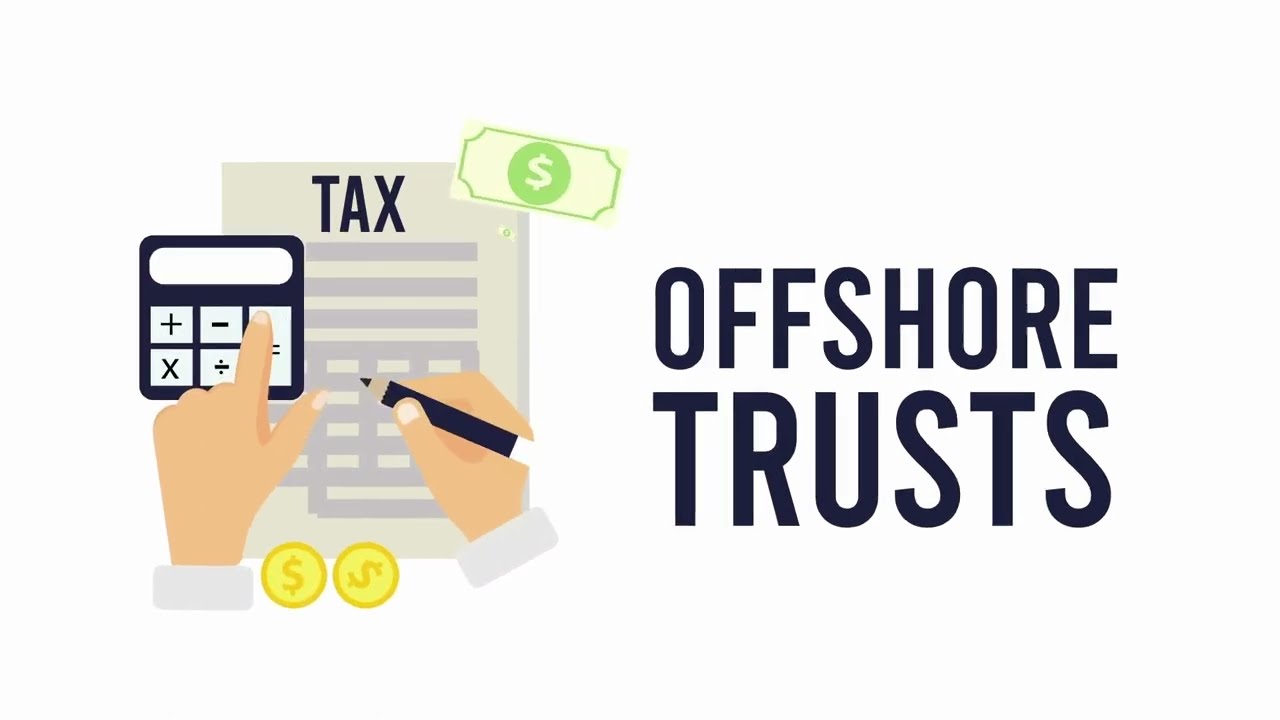In an interconnected world, where capital flows and wealth accumulation cross borders, understanding the nuances of offshore trust taxation has never been more vital. For those seeking to protect their assets and optimize their financial plans, offshore trusts present a tantalizing opportunity. However, navigating this intricate global landscape requires expertise and insight into the varied taxation regimes and the implications these hold for beneficiaries. Dive into this expanded exploration to get a comprehensive grasp on offshore trusts and their ramifications on the global stage.
Trusts are a common tool individuals and corporations use for various purposes, ranging from asset protection to tax burden reduction. But amidst all the benefits of a trust, the question of taxes arises – who pays them? Interestingly, the answer is not straightforward, depending on several factors.
For instance, are the trusts incorporated in a certain country? Are the trust properties located in another? Who receives income from the trust? These are just some questions that can impact which party pays tax on the trust income. Puai Wichman, an expert in wealth solutions, particularly in wealth protection, mentions that understanding the taxation of trusts is a critical component of effective estate planning and asset management.
Understanding The Taxation Of Offshore Trusts
Some people believe that trusts allow the avoidance of taxes because they are not legal entities. Although trusts can significantly reduce your tax burden, taxes are still due. Additionally, the level of taxation varies greatly based on the country in which the trust is registered, as well as where the Trustee, the beneficiaries, and the settlor reside for tax purposes.
So, choosing the right country for your offshore trust is crucial to maximizing its benefits. But that’s not all. Confidentiality is another key aspect to consider, even if trusts don’t ensure a 100% guarantee of information protection. Therefore, when creating an offshore trust, it is essential to explore all the legal and financial requirements to ensure the utmost success and benefit for the property owner.
According to Puai Wichman, when putting your assets in a trust, many assume their tax obligations magically disappear. Unfortunately, that’s not the case. While tax payments may be postponed and rates may be reduced, any income exceeding a certain threshold will always be taxed. It’s important to approach trusts with a nuanced understanding of their implications for your finances. On the bright side, you can still reap significant benefits from trusts, especially regarding estate planning. Working with a knowledgeable financial advisor and crafting a sound strategy ensures your wealth is protected and optimized for the long term.
The key factors influencing tax consequences for trusts:
- Trust registration location: Different countries have diverse tax regulations for property held in trust, impacting tax rates.
- Settlor’s tax residence: The country where the trust creator resides can significantly affect taxation.
- Beneficiaries’ tax residence: Trust beneficiaries must pay income tax on trust earnings based on their country of residence. In some cases, inheritance and other trust assets may also be taxable.
- Trustee’s tax residence (sometimes): The legal owner of trust assets, the Trustee’s tax residency can also be a taxation factor. If there are undistributed incomes, the Trustee is responsible for tax payments.
How do Offshore Trusts help you save on taxes?
Offshore jurisdictions are becoming increasingly popular for those looking to create trusts due to their many benefits. Not only do many of these countries not levy taxes on trust incomes, but they also have no capital gains or inheritance taxes. Protecting personal information for trust settlors and beneficiaries is one of the most critical benefits.
If you’re looking for a safe and reliable offshore jurisdiction for a trust, consider Nevis, the Cook Islands, or Belize. Not only are trust assets well-protected from foreign courts of law, but decisions made by foreign judges are also ignored. Any creditor wanting to sue a trust registered in one of these countries must file a lawsuit with a local law court. So, while many offshore jurisdictions offer benefits, settling your trust in Nevis, the Cook Islands, or Belize will be the perfect choice for peace of mind and security.
Challenges in Transparency and Regulation

The modern economic environment has been moving towards increased transparency, especially in terms of financial dealings. The Organization for Economic Co-operation and Development (OECD) has initiated measures to combat tax evasion, particularly with the Common Reporting Standard (CRS) aiming to ensure tax compliance. Offshore trusts, while legal, sometimes face scrutiny due to concerns about misuse for evading taxes or illicit activities.
Given the global efforts to enhance transparency, offshore trusts must be established and operated with a clear understanding of the international regulatory environment. It’s no longer sufficient to just be tax-efficient; compliance with international standards is paramount.
Balancing Asset Protection and Compliance

One of the primary reasons for setting up an offshore trust is to protect assets. Whether from potential creditors, litigations, or simply to ensure a stable environment for wealth, offshore trusts can offer a sanctuary. However, this protection must be balanced against the need for compliance, especially in light of the increased global scrutiny.
Countries like Nevis, the Cook Islands, and Belize, as mentioned, have solidified their reputation for offering robust asset protection while still maintaining a degree of privacy. Yet, settlors and beneficiaries must be proactive in understanding the changing landscape and ensuring their trusts remain on the right side of regulations.
The Importance of Due Diligence

Before establishing an offshore trust, conducting thorough due diligence is crucial. This includes understanding the local laws, the reputation of the jurisdiction, potential treaties with other countries, and the possible changes in the regulatory environment.
Engaging with professionals, like financial advisors and legal experts, can help in navigating the complexities and ensuring the offshore trust setup is both beneficial and compliant. Due diligence doesn’t end once the trust is set up; periodic reviews and updates are essential to adapt to the evolving global financial landscape.
Conclusion: Navigating the Future with Insight
Offshore trusts remain a powerful tool in the global financial toolkit, offering both asset protection and tax optimization opportunities. However, in a world leaning towards more transparency and regulation, understanding and navigating the intricacies of offshore trust taxation is more crucial than ever. By staying informed and proactive, trust settlors and beneficiaries can ensure their assets are well-protected and compliant, reaping the benefits of their foresight for generations to come.










